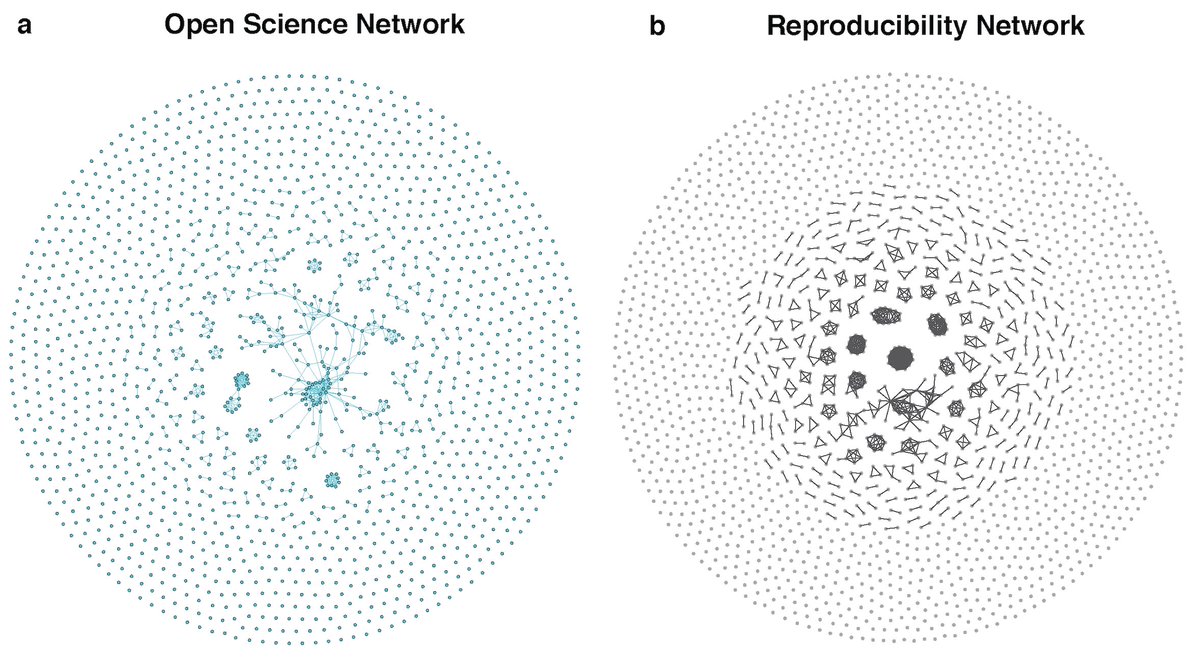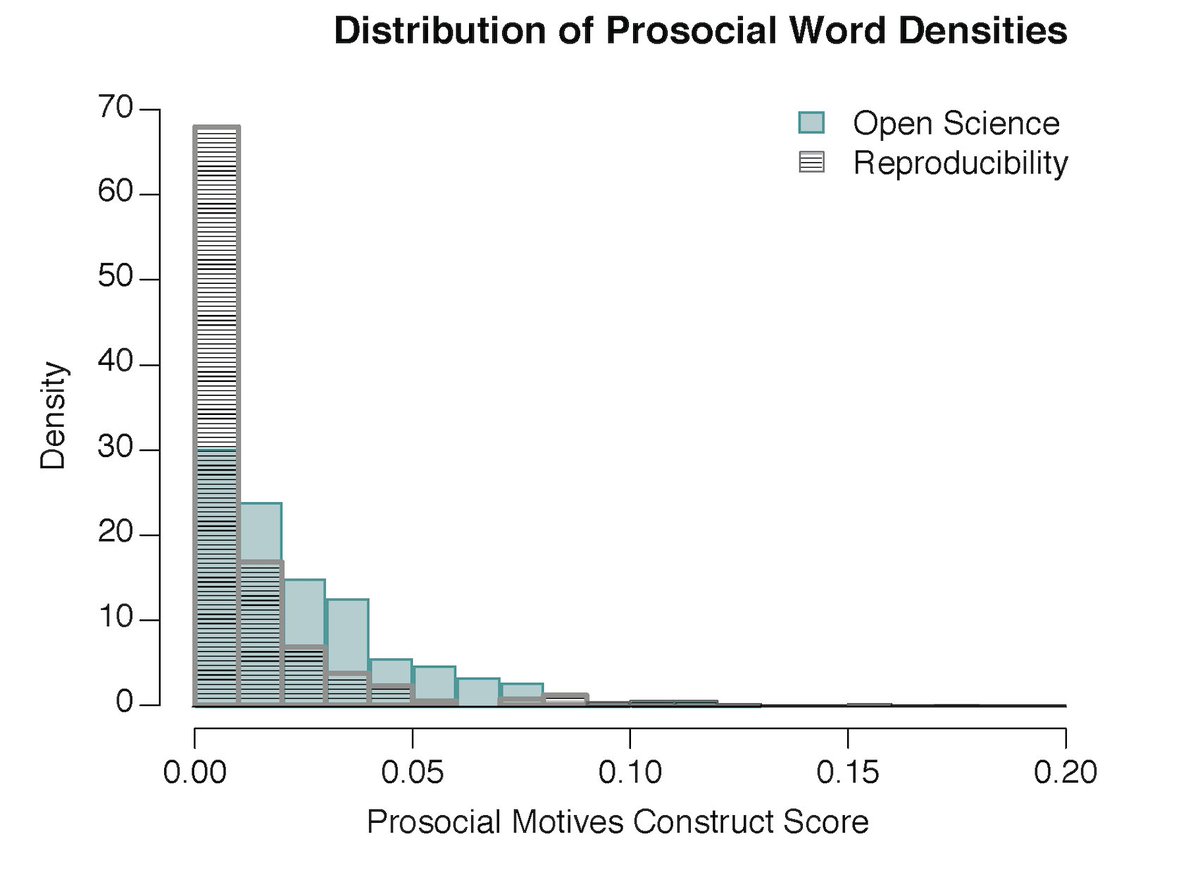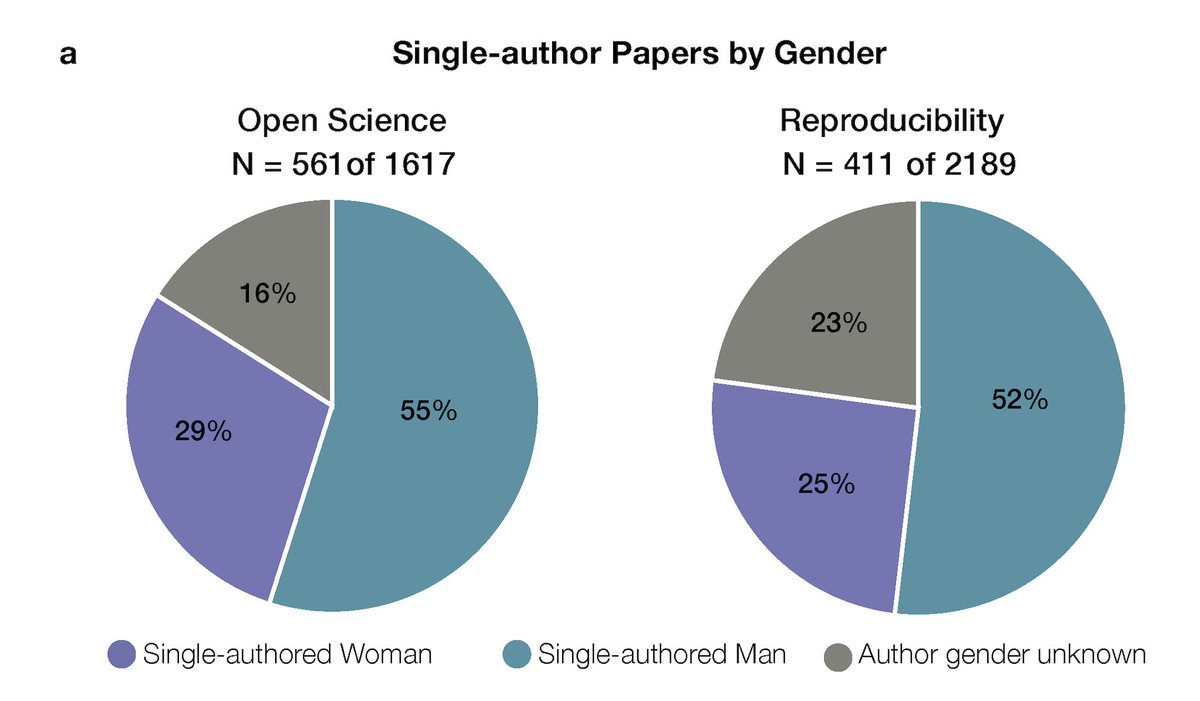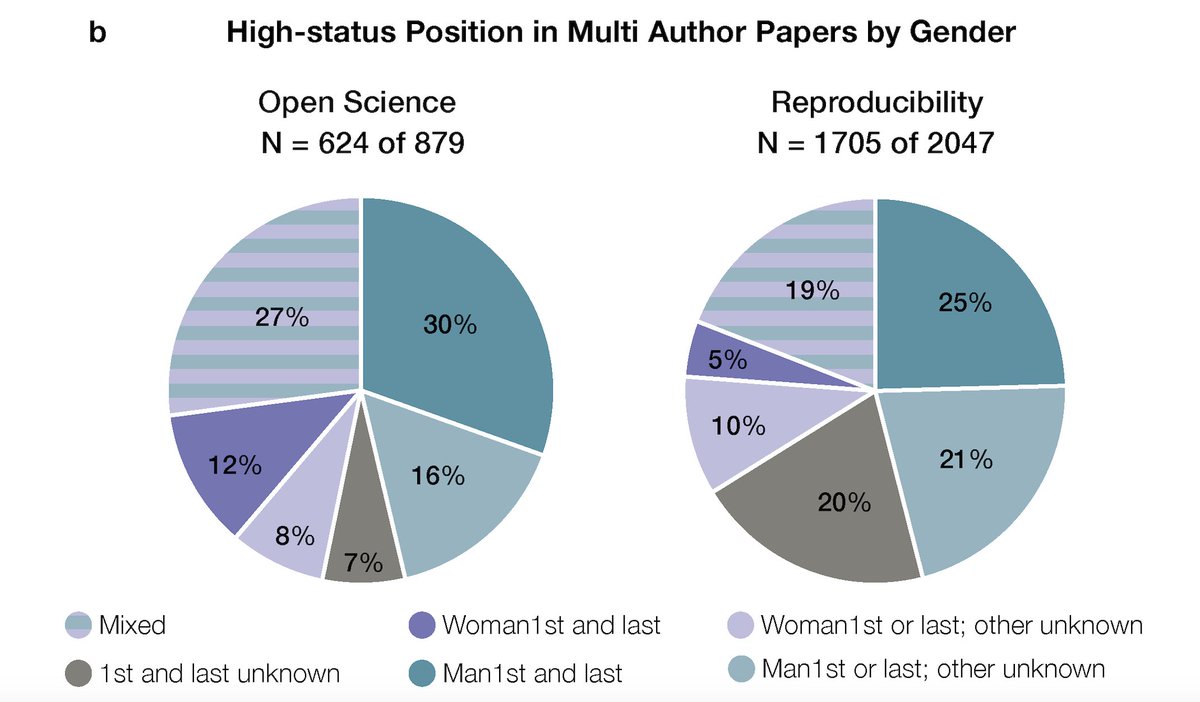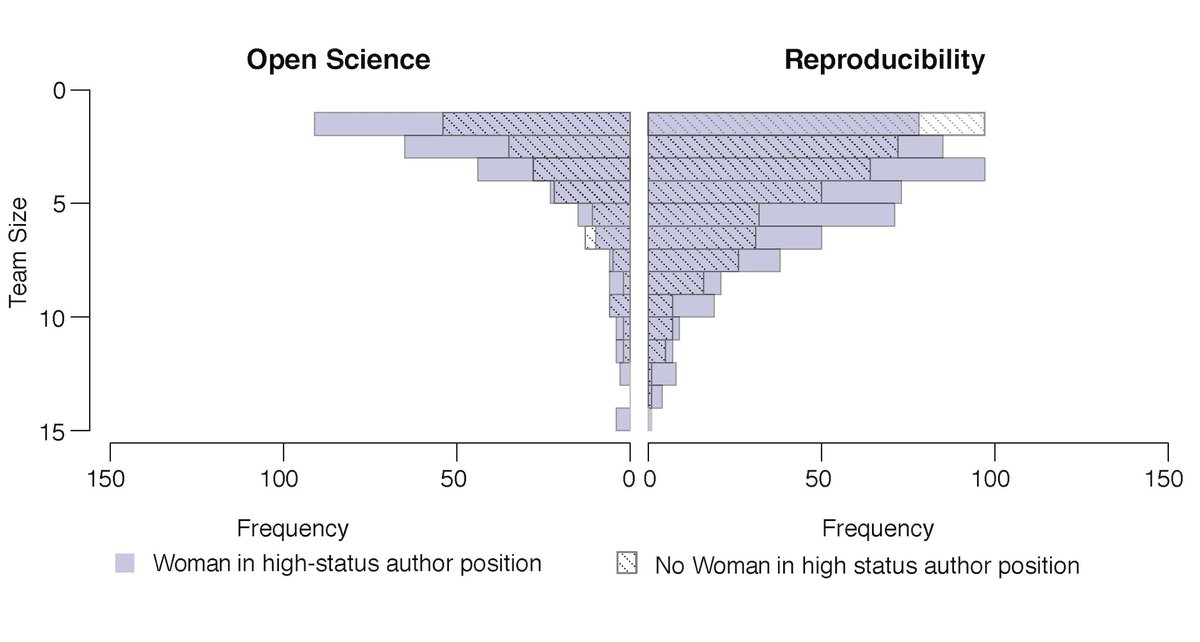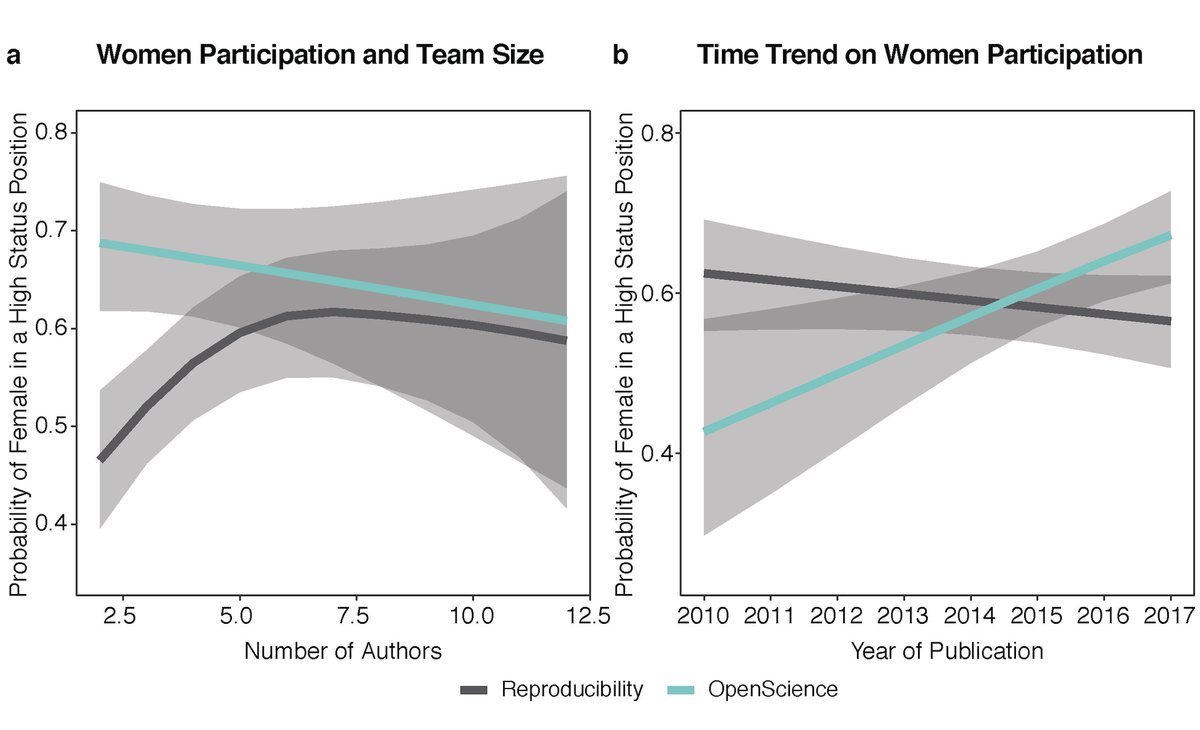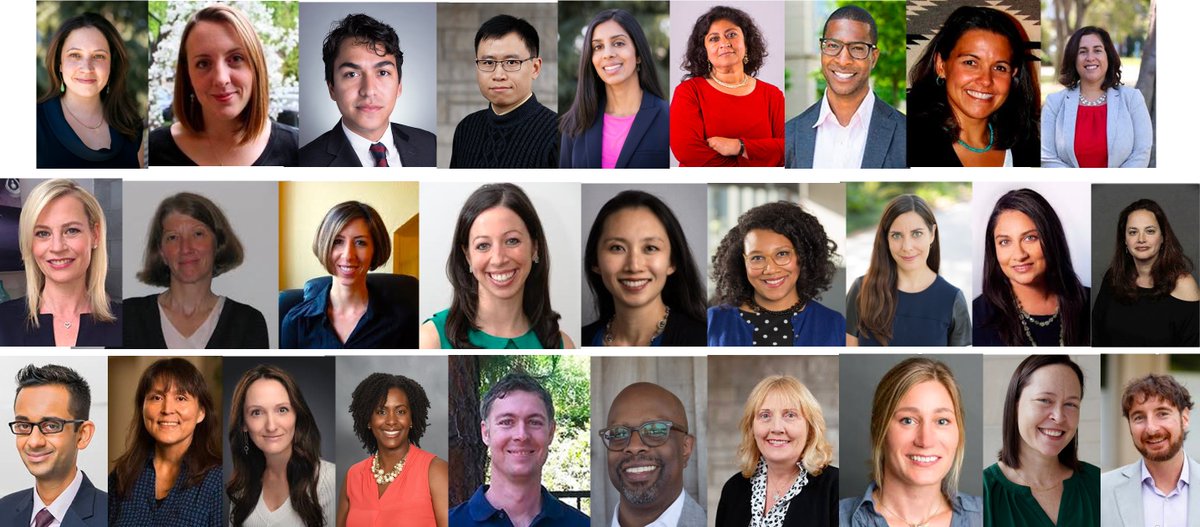New paper out today @PNASNews. We explored the network structure, cultural frames, and women’s participation in the movement to improve science—specifically in Open Science and Reproducibility across all sciences from 2010-2017 (N = 2,926 articles): https://bit.ly/2ZAkRQf .">https://bit.ly/2ZAkRQf&q... (1/X)
Field of study tags identified Open Science & Reproducibility papers across science. We found, surprisingly(to us), that few papers (2.3%) shared field of study tags & few authors publish in both areas—suggesting the two improv. approaches are developing relatively independently.
Seeing this independence, we built collaboration networks to visualize the Open Science and Reproducibility author community structures. The Open Science literature has a more collaborative structure with more connections than does Reproducibility.
We then explored whether the two approaches to improving science differed in their explicit cultural frames, evidenced by the papers’ abstracts. We conducted semantic text analyses using a previously-published text dictionary on the article abstracts.
Previous research suggests prosocial/communal goals and affordances attract and retain more people from diverse backgrounds in science (including women, underrepresented people of color, and communally-oriented men).
We found that Open Science abstracts included more words associated with communal & prosocial constructs (76%) than did Reproducibility (44%)—suggesting that the explicit cultural frames of these approaches may differ. Here are the prosocial word density distributions:
We then turned to examining women’s participation in high-status authorship positions (first or last, given the range of scientific conventions) in these two literatures. We used an R package to identify author gender probabilities (limitation: defaults to gender binary).
Women are underrepresented in single-authored papers in both Open Science and Reproducibility relative to gender parity (50%).
Among multi-authored papers, women are more represented in high-status author positions in Open Science compared to Reproducibility.
Note that w/gender parity, the expected percentage of multi-author papers w/a woman in a high-status author position would be 75% (comprised of a 25% chance of woman first & last, a 25% chance of woman-first & man-last, and a 25% chance of man-first & woman-last).
We found women’s participation in these literatures were moderated by team size and time. Women’s high-status authorship was more constrained by team size in Reproducibility than Open Science.
In Open Science, women’s high-status authorship is greatest in smaller teams and remains consistent as teams grow. In Reproducibility, women are less likely to assume high-status positions in smaller teams (2-3 authors) and more likely to do so in larger teams (6-7 authors).
Moreover, women’s high-status authorship has been increasing over time in Open Science and decreasing over time in Reproducibility (see panel b).
We examined whether these patterns varied across scientific disciplines/fields (e.g., CompSci, Bioscience, Medicine, Engineering, etc.). The patterns we report largely replicate across the different fields (see supplemental figures & analyses).
Important: we cannot make claims about causation here. Do prosocial scientific cultures in the movement(s) to improve science attract women scholars? Do women scholars contribute to creating & sustaining a more prosocial culture? Something else? We don’t know. We need more work.
We discuss the implications of these findings. The Culture(s) of Science matter for people’s participation in it. If we want diverse and robust participation in Science and the movements to improve Science, we must attend to the cultures we are creating and sustaining.
This work itself was an international team science collaboration consisting of computer scientists, bioscientists, network scientists, social and cultural psychologists, and statisticians. We couldn’t conduct this work without these different perspectives and expertise.
@mandymejia @everyxs @scheryan1 @Dasgupta_Psych @MesminDestin @StephFryberg @hainese @numbat17 @AlisonLedg @cmossrac @sylviapperry @FloridaKateR @AneetaRattan @Dr_DSanchez @ksavani @DustinThoman @dwout @PMabry12 @ResslLab @AmandaDiekman @furranko (sorry if I missed others’ @!)
This research was supported, in part, by funding and support from @NSF, @RussellSageFdn, @IUImpact, @IUPsych. All views are our own and do not reflect endorsement by these organizations.

 Read on Twitter
Read on Twitter